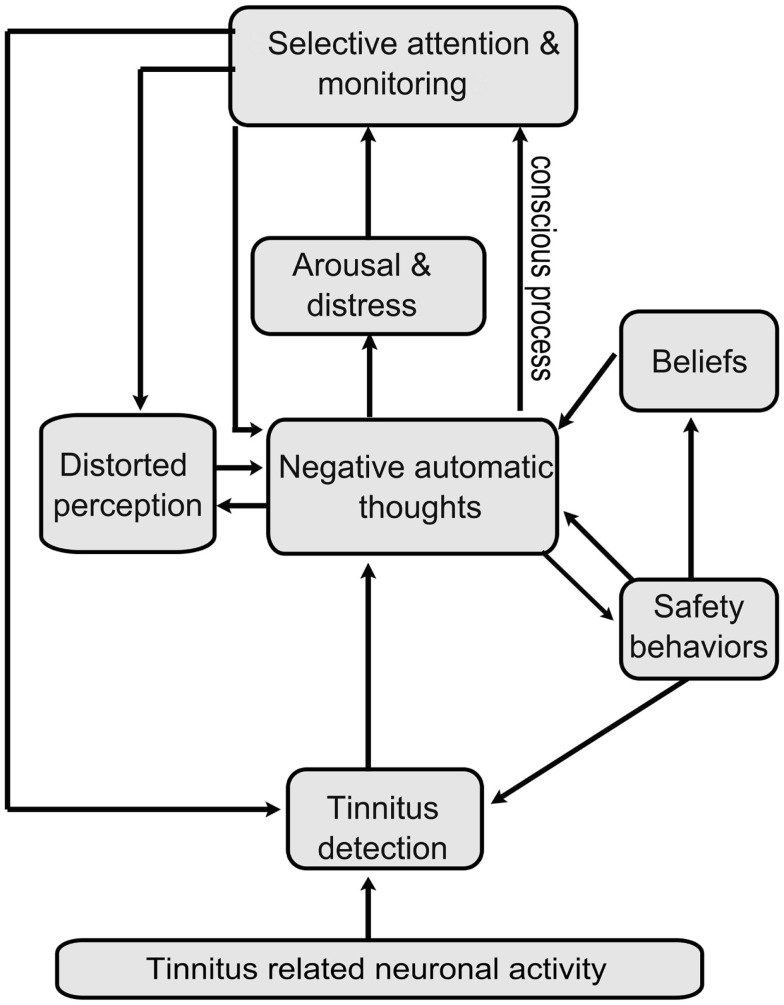Figure 1.
A cognitive model of tinnitus distress. Representation of the novel cognitive-behavioral model of tinnitus distress. Tinnitus provokes distress when a person holds overly negatively thoughts about it. These negative thoughts provoke arousal and emotional distress and motivate maintaining factors such as selective attention, monitoring, and counterproductive safety behaviors. These processes result in the patient overestimating the intensity and complexity of tinnitus, i.e., patients gain a distorted perception of tinnitus. Distorted perception is also fueled by overly negative thoughts of tinnitus. A number of feedback loops are involved: selective attention and monitoring leading to greater detection of tinnitus, to further negative appraisal; distorted perception of tinnitus leads to further negative appraisal and we tentatively hypothesize that negative appraisal contributes to distorted perception. In many cases, safety behaviors adopted to cope with the perceived threat inadvertently maintain or exacerbate existing worry and in many cases also directly alter the detection of tinnitus, e.g., by manipulating environmental sounds. Beliefs about tinnitus also fuel negative thoughts. Such beliefs are based on experience of tinnitus in others or derive from general beliefs about health, the self, or the world. Both conscious and involuntary processes are involved but the model emphasizes conscious processes as these constitute the main therapeutic targets.

